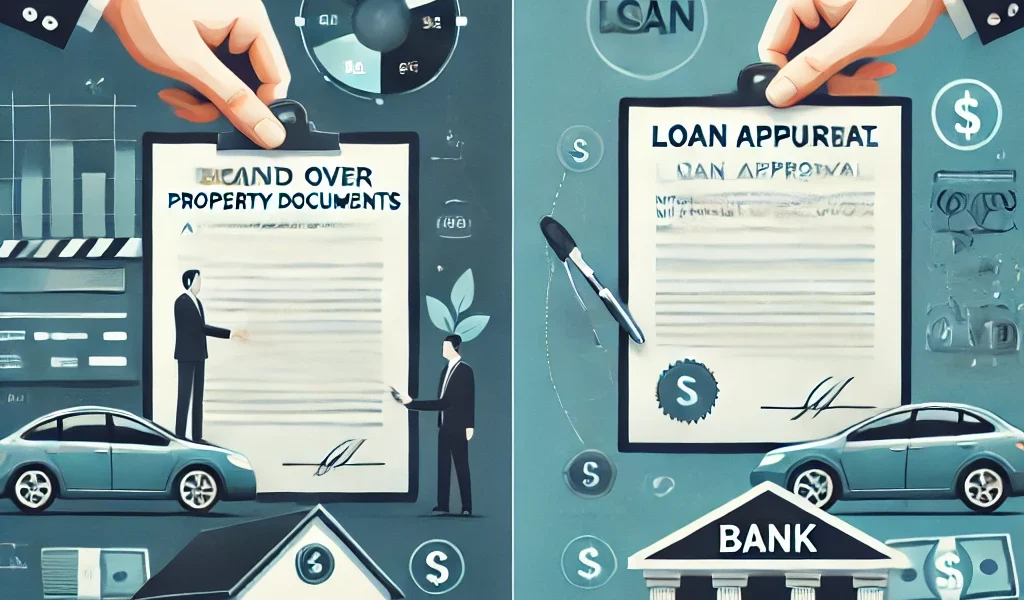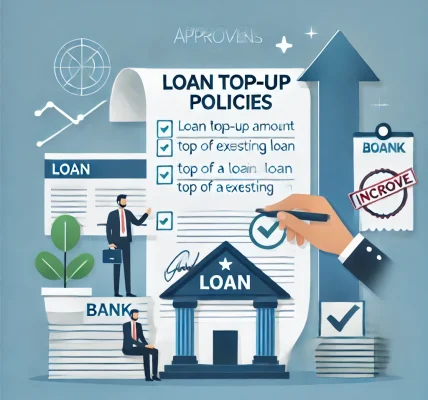Introduction
Loans play a crucial role in fulfilling financial needs, whether for buying a home, funding higher education, expanding a business, or handling emergencies. However, choosing between a collateral loan (secured loan) and a non-collateral loan (unsecured loan) can be challenging. Understanding their differences, benefits, and risks is essential to make an informed decision.
This blog will explain collateral vs. non-collateral loans, their key features, eligibility criteria, advantages, and risks, helping you determine which one suits your financial situation best.
Disclaimer: Loan terms vary based on country, lender, and financial policies. Always check with the respective lender before applying.
What Are Collateral and Non-Collateral Loans?
1. Collateral Loans (Secured Loans)
Collateral loans require the borrower to pledge an asset (such as property, gold, a car, or fixed deposits) as security. If the borrower defaults, the lender can seize the asset to recover the outstanding loan amount.
Examples:
- Home loans
- Car loans
- Loan against property
- Gold loans
- Business loans backed by assets
Key Features: ✔ Lower interest rates (due to reduced lender risk) ✔ Higher loan amounts ✔ Longer repayment tenure ✔ Requires asset evaluation ✔ Risk of losing collateral if defaulted
2. Non-Collateral Loans (Unsecured Loans)
Non-collateral loans do not require any security, and the approval is based on the applicant’s creditworthiness, income, and repayment history. These loans are riskier for lenders, leading to higher interest rates.
Examples:
- Personal loans
- Education loans (some countries offer unsecured student loans)
- Credit card loans
- Business loans without collateral
Key Features: ✔ No asset required ✔ Quick approval process ✔ Higher interest rates ✔ Lower borrowing limits ✔ Shorter repayment tenure
Key Differences: Collateral vs. Non-Collateral Loans
| Feature | Collateral Loan (Secured) | Non-Collateral Loan (Unsecured) |
|---|---|---|
| Collateral Required | Yes (property, car, gold, etc.) | No |
| Interest Rates | Lower | Higher |
| Loan Amount | Higher | Lower |
| Approval Time | Longer due to asset evaluation | Faster |
| Risk for Borrower | Risk of losing collateral | No collateral risk |
| Credit Score Requirement | Less strict | More strict |
| Repayment Tenure | Longer | Shorter |
| Common Loan Types | Home, car, business loans | Personal, education, credit card loans |
Pros and Cons of Collateral and Non-Collateral Loans
✔ Pros of Collateral Loans
✅ Lower interest rates, reducing repayment burden ✅ Higher loan amounts, ideal for big investments (e.g., home, business) ✅ Longer repayment tenure, making EMIs manageable ✅ Easier approval even for borrowers with low credit scores
❌ Cons of Collateral Loans
❌ Requires valuable assets as security ❌ Risk of losing pledged assets in case of default ❌ Lengthy approval process due to asset verification
✔ Pros of Non-Collateral Loans
✅ No need for assets or security ✅ Quick processing and disbursal, useful for emergencies ✅ More accessible for young professionals, students, and small businesses
❌ Cons of Non-Collateral Loans
❌ Higher interest rates increase total repayment amount ❌ Lower loan amount compared to secured loans ❌ Shorter repayment tenure leading to higher EMIs ❌ Stringent eligibility criteria, requiring high credit scores
Which One Should You Choose?
Choose a Collateral Loan if:
✔ You have a valuable asset to pledge. ✔ You need a large loan amount (e.g., buying a house, business expansion). ✔ You want lower interest rates and a longer repayment tenure. ✔ You are confident in making timely repayments to avoid asset loss.
Choose a Non-Collateral Loan if:
✔ You do not have assets or do not wish to risk them. ✔ You need quick financing for urgent expenses. ✔ You are applying for a low to medium loan amount. ✔ You have a strong credit score and repayment history.
Factors to Consider Before Applying for a Loan
✅ 1. Interest Rates & Loan Costs
Compare different lenders to find competitive interest rates. Secured loans generally have lower rates than unsecured loans.
✅ 2. Loan Amount & Tenure
Assess your financial needs and repayment capacity before choosing between a short or long tenure loan.
✅ 3. Credit Score & Eligibility
Non-collateral loans require a good credit score (700+ in most cases). If your score is low, a secured loan may be a better option.
✅ 4. Risk Tolerance
Consider whether you are comfortable pledging an asset or prefer a risk-free borrowing experience.
✅ 5. Hidden Charges & Fees
Check for processing fees, late payment penalties, foreclosure charges, and other hidden costs before signing the loan agreement.
Conclusion
Choosing between collateral and non-collateral loans depends on your financial situation, risk appetite, and borrowing needs.
- If you own assets and need a large loan with low interest, a collateral loan is the best choice.
- If you need quick funding without risking assets, a non-collateral loan is more suitable.
Before applying, evaluate all terms, compare different lenders, and choose a loan option that aligns with your financial goals and repayment capability.
Disclaimer: Loan policies and terms vary by lender and country. Always review the latest terms before borrowing.




